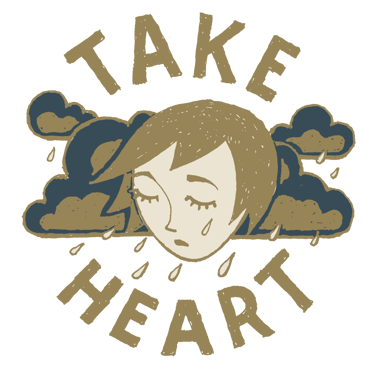More than nostalgia
Musing
I doubt my ability to successfully unpack what is on my mind, but I am going to try. Call it an exercise in honest writing. Maybe I will feel more comfortable if I call it writing practice. That way I can pretend you will ignore it, or at least not take me seriously. Following the advice of Natalie Goldberg (Writing Down the Bones) I wrote the first draft of this by hand, on paper, with my favorite pencil (Mirado Black Warrior 2 HB if you are curious). As I wrote this first pencil draft I was solo babysitting my own three children plus two neighbor kids, all under the age of ten, it was Saturday night, and the noise level in the house was incredible. I sat at the kitchen table. Occasionally I took a break to settle arguments or check in on the tears and screams to make sure no one was bleeding. At the time of this second draft, typed on a computer, I am again at the kitchen table. Again I am solo parenting my own three, and again I am taking care of a neighbor kid, though only one this time.
On the night that prompted this post, my wife was out for the evening. In the middle of cleaning up after dinner, I paused to watch a few snatches of a movie the kids had put on: The Secret of N.I.M.H., an animated children’s film, made the year I was born. It was the second or third time I caught pieces of it as an adult (I have no idea how many times I watched it as a kid, but it was a lot). It is sentimental, overblown, and melodramatic, but I was immediately arrested. Immediately, I was emotional, fragile, dramatic, needy. I feel a little stupid admitting this. But I’m pretty sure it wasn’t merely memory and nostalgia smacking me around, though I admit those factors were present. Watching it as a kid, even for the first time, I remember the same seep of melancholy, the same sense of loss so hard to precisely put a finger on. The movie is frightening, beautiful, and deeply unsettling. It changed me the first time I saw it. I knew it even then, at 9 or 10 years old. The first season of Stranger Things struck many of the same notes more than 25 years later. (The second season is great too, but it was the first that hit hard.) Lev Grossman’s book The Magicians also brought some of these same feelings to the surface. I began to see a pattern. At least I think so. They are all great stories, but I am interested in talking about one aspect of them here. I am afraid of looking too closely. To pick apart and intellectualize something too rigorously risks breaking or losing it. Will the magic all run out?
It’s is hard to define, hard to give shape to. That’s the trouble. I have to talk about it and around it to get at it. Mainly, I think, it boils down to two things—a specific type of character and a particular situation. Concerning character: in The Secret of N.I.M.H., that character is Mrs. Brisby. In Stranger Things, it’s Eleven. In The Magicians, Alice. I will explain what I mean in a moment. Situation is also key: each of the above characters is a (mostly) ordinary girl/woman (or mouse, whatever) who is strong, determined, and intelligent—but also vulnerable. This is what I mean by situation: they are at risk and it’s not their fault. Each is a victim of an unusual or particularly challenging set of circumstances. Mrs. B.’s husband has just died and her son is in mortal danger. Her only course of action involves seeking the advice of creatures who might kill and eat her instead of helping. I don’t have to explain Eleven’s plight (if I do, then stop reading this and go binge the first season of Stranger Things before finishing this post), but it’s filled with grave danger and the constant discomfort of the unknown. A fish out of water. Alice’s circumstances are more subtle and complicated, but her family history is a burden she can’t seem to put down, and it eventually tears her to pieces.
Now, back to character. We have these people who are also in great danger. Because of their circumstances they must act, and courageously. Much will be demanded of them. Each embodies a distinct paradox of character, based on a complex set of attributes. They are ordinary and extraordinary at the same time. Mrs. B. and Eleven (and to a lesser degree, Alice), are never pitiful, even in the midst of great suffering. They consistently show compassion and concern for others, and for the most part make pretty good choices, but their virtue is not unrealistic. They remain relatable, flawed, scared and human. As such, we love them, see ourselves in them, want to be like them. They are all the best parts of ‘ordinary’ combined. This ordinariness is underlined by the absurd power or magic they each wield at some point in their own story. Which they only use for good. This magic doesn’t take away from our connection with them, doesn’t corrupt them (as it probably would us) or gut their quiet selflessness and courage of its meaning, but instead makes them even more relatable because it draws attention to their choices. They seem largely unfettered by selfish desire and temptation, weaknesses that are naturally tested by the potential great power brings. Instead, they focus most of their energy on others. The contrast of power with vulnerability allows their heroic choices to take on heroic proportions.
The gifts (or curses, depending on how you look at it) these characters possess are more than just a nitro boost when they need extra strength. The magic isn’t fully in their control. It injures them, both physically and emotionally. Mrs. B. is badly burned, Eleven is emotionally terrorized and physically battered, and Alice is totally destroyed. All in the service of people they love. All three still human, but also something else, something entirely mysterious. They are aided and wounded by forces that draw them closer to others while pushing them apart. They are outsiders. Rescuers. Otherworldly.
This idea, or set of ideas, has been turning in my head for a long time. I have fretted and worried at it. I think I can sum it up. It’s basically this: A kind and honest person finds herself in difficult circumstances. As she works to help her friends overcome the problems they face, she acts with selflessness and love. She uses magic or some kind of mysterious power to triumph, saving her friends, herself suffering or dying as a result. Put like this, it becomes more familiar. We all have problems that need to be solved. And the desire to be heroic, at least in little ways, is natural and universal. We also all have people we love who we would sacrifice everything for if we can just find the courage. Stories with models of kindness and virtue and heroism fuel our desire to be better. Especially if the role models are strong, beautiful women with no ego. Why women? Throughout history women have been the first to stand up for compassion, peace, and the concerns of others besides themselves. Who better to showcase these virtues than a woman overcoming great odds in the face of danger? What about magic? Magic, that mystical ‘what-if,’ that childhood daydream, has been woven into the imaginations and stories of people since the beginning of time. A bit of magic in a story is a highlighter, marking the good parts so that they stand out more brilliantly.
I am not saying that any of the stories or characters I have been talking about are perfect models of these ideas. None of the three I mention fit the concept consistently. Their creators may not have intended any of what I took from their work. But they all contain essential contributions to an idea I find moving and compelling. An idea I have wanted to understand better. I am grateful for the stories.



